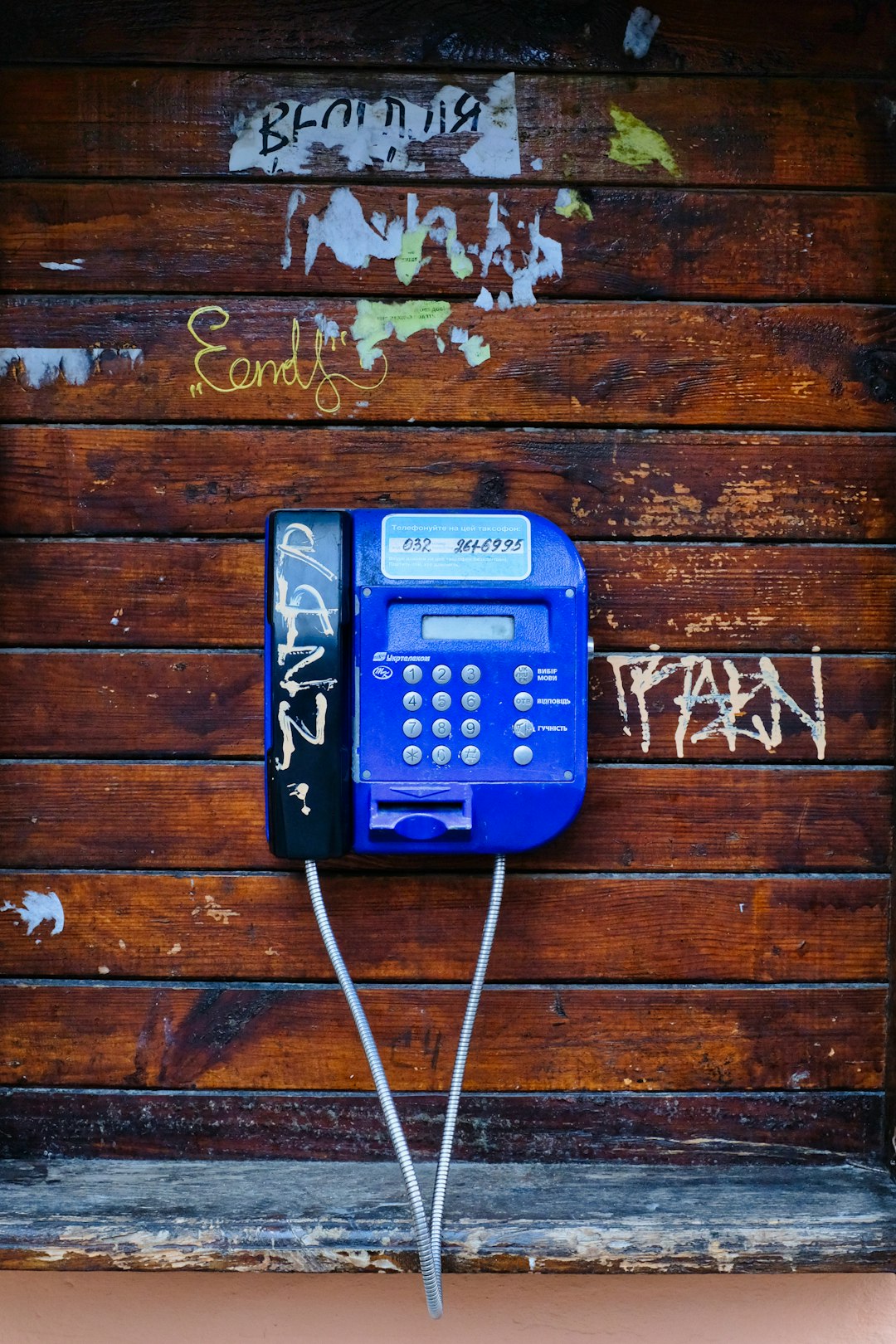In New Mexico, especially Albuquerque, robocall regulations under state and federal laws, notably the Telephone Consumer Protection Act (TCPA), protect consumers from unwanted telemarketing. Specialized lawyers, termed "lawyer for Robocall New Mexico," guide clients through compliance issues, offer training for businesses, represent in court, and navigate legal complexities related to automated calls. These experts are invaluable for plaintiffs and defendants involved in disputes over automated communications. In Albuquerque lawsuits, engaging such a lawyer aids in subpoenaing robocall records, crucial for proving unlawful practices or privacy invasions. The process involves identifying call sources, obtaining court subpoenas, serving them on providers, and monitoring compliance. An experienced "lawyer for Robocall New Mexico" ensures valid subpoenas, minimizes risks of dismissal, and helps gather essential evidence under the TCPA.
“In the digital age, robocalls have become a pervasive nuisance, prompting legal action from those affected. For those seeking justice in Albuquerque, understanding how to subpoena robocall records is crucial. This guide navigates New Mexico’s regulations surrounding automated calls, highlighting when and why such subpoenas are essential.
We’ll explore the attorney’s role in this process, offering a step-by-step approach for effective record retrieval. Additionally, common challenges are addressed, providing strategies to overcome them. Discover your rights as a consumer and empower yourself with knowledge on how to tackle robocall lawsuits with the help of a qualified lawyer specializing in robocall laws in New Mexico.”
Understanding Robocall Laws and Regulations in New Mexico

In New Mexico, including Albuquerque, robocalls are regulated by state and federal laws designed to protect consumers from unwanted and deceptive telemarketing practices. Understanding these regulations is crucial when navigating lawsuits involving automated phone calls. The Telephone Consumer Protection Act (TCPA) is a federal law that restricts the use of automatic dialing systems and prerecorded messages for telemarketing purposes without prior express consent from the recipient.
Local laws, such as those in New Mexico, further refine these rules. A lawyer specializing in robocall cases in New Mexico can provide invaluable guidance on compliance issues and help plaintiffs or defendants navigate complex legal terrain. They ensure that calls are made with proper authorization, offer training on legal do’s and don’ts for businesses, and represent clients in court to resolve disputes related to robocalls.
When and Why You Might Need a Subpoena for Robocall Records

In today’s digital age, robocalls have become a pervasive and often frustrating aspect of daily life. However, they can also serve as crucial evidence in legal cases, especially in Albuquerque, New Mexico. If you’re considering a lawsuit or are already involved in one, there might be instances where obtaining records of these automated calls is essential to building your case. This could involve demonstrating unlawful practices, invasion of privacy, or even fraud, making it imperative to have detailed call data.
A subpoena for robocall records is a legal tool used to compel a third party, such as a telecommunications company, to produce specific documentation related to a case. It’s typically employed when traditional requests for information are not successful or when the data required is unique and critical to proving or disproving allegations. Engaging the services of an experienced lawyer specializing in robocall cases, like those in New Mexico, can be invaluable in navigating this process, ensuring that all legal requirements are met efficiently and effectively.
The Role of an Attorney in Issuing Subpoenas in Albuquerque

In Albuquerque, an attorney plays a pivotal role in issuing subpoenas for robocall records during lawsuits involving phone harassment or violations of the Telephone Consumer Protection Act (TCPA). A lawyer for Robocall New Mexico is well-versed in both state and federal laws governing such practices and can guide clients through the legal process effectively. They possess the expertise to draft and file precise subpoenas, ensuring compliance with the law while maximizing the chances of obtaining relevant records from telecommunications companies.
The attorney’s knowledge of local court procedures and rules enables them to navigate the subpoena issuance process efficiently. This includes understanding when and how to serve the subpoena, managing deadlines, and addressing any objections or challenges that may arise. By leveraging their legal acumen, a lawyer for Robocall New Mexico can help plaintiffs gather crucial evidence needed to prove their cases and seek appropriate remedies under the TCPA.
Step-by-Step Guide to Effectively Subpoena Robocall Records

Subpoenaing robocall records can be a complex process, but it’s crucial in Albuquerque lawsuits involving unwanted automated calls. Here’s a step-by-step guide for lawyers navigating this procedure in New Mexico:
1. Identify the Source: First, pinpoint the entity responsible for the robocalls. This could be a telemarketing company or a business using an automated system. Verify their involvement through caller ID, call logs, and any available records on the client’s end. A lawyer for Robocall New Mexico should be adept at gathering these details to establish a solid foundation for the subpoena.
2. Obtain a Subpoena: Next, secure a subpoena from an appropriate court. This legal document orders the holder (in this case, the phone company or relevant service provider) to produce specific records related to the robocalls. Ensure the subpoena includes essential details: the name of the company, the nature of the requested records (call logs, caller ID data, etc.), and the time frame in question. Filing with a New Mexico court ensures compliance with local laws.
3. Serve the Subpoena: Properly serve the subpoena to the service provider. This involves following the legal procedures outlined by New Mexico laws for serving subpoenas. Ensure you provide clear instructions on how to access and produce the requested records, including deadlines.
4. Monitor Compliance: Keep track of the response time and ensure the service provider complies with the subpoena. If there are any issues or delays, take prompt action to resolve them. This might involve follow-up communications or legal motions to enforce the subpoena.
Common Challenges and How to Overcome Them During the Process

Navigating the process of subpoenaing robocall records in Albuquerque lawsuits isn’t without its challenges. One common hurdle is obtaining valid, enforceable subpoenas that comply with New Mexico’s rules of civil procedure. It’s crucial to ensure the subpoena is specific, describing the records sought with particularity, and delivered in a manner permitted by law. Working with an experienced lawyer for robocall New Mexico can help avoid these issues. They understand the intricacies of issuing subpoenas, ensuring compliance, and minimizing the risk of dismissal or rejection.
Another challenge lies in obtaining cooperation from third-party providers, as robocall records often reside outside the direct control of the defendant. Lawyers must strategize to compel these providers to produce the needed information. This might involve demonstrating a legitimate need for the records, establishing relevance to the lawsuit, and presenting a court order or subpoena that clearly outlines the request. An attorney specializing in robocall litigation can guide clients through these complexities, ensuring a robust legal strategy to obtain crucial evidence.






